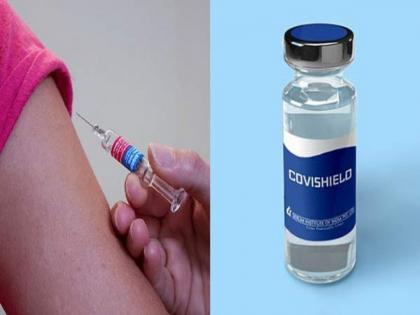How Serious Are the Side Effects of the AstraZeneca Vaccine, Named Covishield in India? Here Are the Facts.
By Deepak | Published: May 1, 2024 01:11 PM2024-05-01T13:11:28+5:302024-05-01T13:31:19+5:30
Recent admissions by AstraZeneca that manufactured Covid-19 vaccine in a British court, that the vaccine may have certain side ...

How Serious Are the Side Effects of the AstraZeneca Vaccine, Named Covishield in India? Here Are the Facts.
Recent admissions by AstraZeneca that manufactured Covid-19 vaccine in a British court, that the vaccine may have certain side effects that could cause blood clotting has taken the world by a storm. As the vaccine was manufactured as Covishield by Serum India, and was administered to a large population in India, there have been widespread fears following the reports. There also have been several instances of sudden unexplained deaths, some of them captured on video and circulated on social media, the fears and suspicion that they were in some way related to the vaccine, havee been deep-rooted.
Let’s look at the facts to see if these fears are indeed true.
The side effects were known and reported much earlier.
European Medicines Agency, a decentralized agency of the European Union responsible for the scientific evaluation, supervision and safety monitoring of medicines, had first flagged the vaccine side effects way back in April 2021. In its advisory dated April 7, 2021, the agency had said, “EMA’s safety committee (PRAC) has concluded today that unusual blood clots with low blood platelets should be listed as very rare side effects of Vaxzevria (formerly COVID-19 Vaccine AstraZeneca).”
Concerns had led to a pause of administering of AstraZeneca vaccines in European countries by mid March and citizens were offered options like Pfizer and Moderna which were mRNA vaccines.
Lethal side effects were seen in very small numbers
The agency found that out of the 25 million people that received the vaccine, only 62 cases of cerebral venous sinus thrombosis (commonly referred as brain blood clotting) and 22 cases of splanchnic vein thrombosis were reported till March 22, 2021 and 18 of these were fatal. The agency noted that these cases mainly came from spontaneous reporting systems of EEA and UK.
The side effects were seen only in the first month of administering of the vaccine.
The agency had this to say on the period when the side effects were observed : EMA is reminding healthcare professionals and people receiving the vaccine to remain aware of the possibility of very rare cases of blood clots combined with low levels of blood platelets occurring within 2 weeks of vaccination. So far, most of the cases reported have occurred in women under 60 years of age within 2 weeks of vaccination. Based on the currently available evidence, specific risk factors have not been confirmed.
Separately, Health Canada, a Canadian government health agency, too had noted the side effects but had this to advise their citizens: Based on current evidence, for those individuals who have already been vaccinated with AstraZeneca more than 28 days ago there is no cause for concern.
https://www.gov.nl.ca/covid-19/vaccine/astrazeneca-covishield-information/
Most importantly, several prestigious scientific organisations insisted the vaccine was safe and risks outweighed the benefits.
Though EMA was one of the first government agencies to raise the red flag, the agency concluded that the vaccine was safe. This what the agency had to say in the same advisory : The benefits of the vaccine continue to outweigh the risks for people who receive it. The vaccine is effective at preventing COVID-19 and reducing hospitalisations and deaths.
An independent study carried out in Denmark and published in prestigious medical journal Lancet also said this : When making decisions on the use of drugs based on pharmacovigilance, it is important to take into account the natural incidence of illnesses, such as venous thromboembolisms, that might be interpreted as serious adverse events. Here, based on pre-pandemic incidence rates from the entire Danish population, we report that the number of venous thromboembolisms reported in relation to the Oxford–AstraZeneca COVID-19 vaccine does not seem to be increased beyond the expected incidence rate.
https://www.thelancet.com/journals/lancet/article/PIIS0140-6736(21)00762-5/fulltext
Open in app